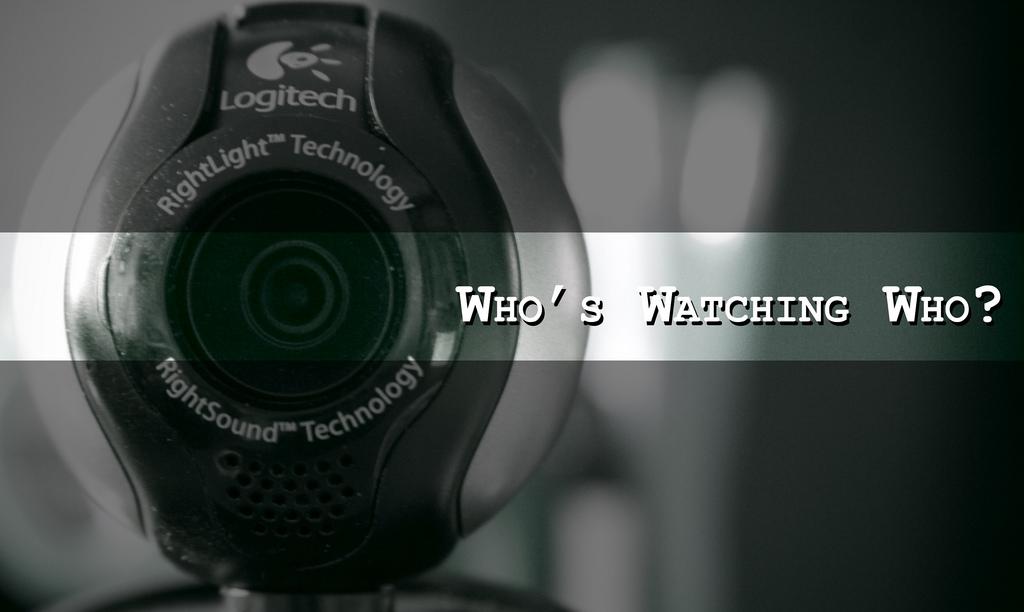
Image by Kevin LaBianco via Flickr (CC BY 2.0).
Under the “Live Digital” initiative, Colombian Minister of Information and Communication Technologies Diego Molano is pushing a policy program under which the government will bestow upon each citizen a “digital portfolio,” where all of one’s personal data held by the state, ranging from state identification and passport numbers to tax information and health data, would be stored together and come with a unique government-issued email address.
Although conceived as a pathway to greater efficiency in communication between government agencies and reduction of paper use, the policy has raised concern that it may leave citizens vulnerable to greater government surveillance or to malicious hacking.
One concerned citizen, a Colombian industrial engineer named Pedro Rivera, filed an information request with the Minister of Information and Communication Technologies in an effort to obtain information on various aspects of the project. Rivera filed the request with the support of the digital rights collective “RedPaTodos”, which advocates for absolute transparency on matters of public policymaking. Rivera argues that the initiative should be repealed or subject to public review and approval before being implemented.
On Pastebin, Rivera acknowledges the potential conveniences offered by the system but rejects certain aspects of the system, noting that they could lead to different kinds of abuse and infringe human rights. This paragraph references the revelations of Edward Snowden, as they relate to Google:
Todo esto significa que básicamente toda tu existencia ante el estado se reduce a una cuenta de “Google”. Como sabemos por las revelaciones de Edward Snowden, “Google” tiene pleno poder de leer información, analizarla, copiarla, venderla o cerrar cuentas sin más ni más. Si sustituimos a “Google” por una empresa privada controlada a través de concesiones por el gobierno colombiano, que nos podemos esperar?
This basically means that your entire existence before the state is reduced to a “Google” account. As we know from the revelations made by Edward Snowden, “Google” has full power to read information, analyze, copy, sell it or close accounts without further ado. If we replace “Google” with a private company [ostensibly controlled by] the Colombian government, what we can expect?
RedPaTodos published “Concerns and Proposals on the Citizen Portfolio initiative,” affirming its support for the petition and broader initiative. They conclude:
Es claro que tenemos demasiadas preocupaciones y pocas claridades, algunas de estas preguntas vienen de la poca información concreta sobre el proyecto y otras más sobre la existencia de contratos que parecieran estar relacionados. Obvio, si ya hay contratos el margen de incidencia es mucho menor que si es una propuesta abierta para el debate y su mejoramiento. Hemos realizado una recopilación de la información que creemos está relacionada con el proyecto pero sabemos que está incompleta. Ante la falta de certezas e información pública y veraz sobre este proyecto, hemos decidido presentar un derecho de petición a MinTIC solicitando más información y con esta definir una ruta posible para afectar esta propuesta buscando la garantía de nuestros derechos un espacio de diálogo inicialmente de nosotros, la idea es que pueda la sociedad involucrarse en la medida de lo posible y también otros colectivos y sectores.
It is clear that we have too many concerns and little clarity; some of these questions come from the little concrete information about the proposed policy and more about the existence of contracts that appear to be related. Obviously, if there are already contracts, the margin of incidence is much narrower than if it is open for discussion and possible improvement. We have made a collection of information that we believe is related to the project, but we know it's incomplete. In the absence of certainty and truthful information about this project, we have decided to invoke our right to petition and thus to petition the Ministry of Communication Technologies requesting more information about the program. [We propose to work with them] to set plan to carry out this proposal and to invoke our rights to develop a space for dialogue that will take place initially among key stakeholders, but that will ultimately allow society can be involved as much as possible and also another groups and sectors.
Human rights lawyer and Internet advocate Carolina Botero, writing for El Espectador, expressed concern about the silence that the ICT Ministry has maintained surrounding the issue. She also highlighted comments published on the website of Fundacion Karisma, a digital rights organization under her leadership:
[…] “el Proyecto Carpeta Digital se llevará a cabo mediante una alianza público-privada. Esta metodología no solo es imprecisa, sino que revela una de las mayores preocupaciones que tiene la sociedad civil respecto al derecho a la intimidad”. Como el propio plan decía poco del proyecto, nos quedamos pendientes de la respuesta del MinTic a los comentarios (que aún esperamos) y, sobre todo, a la presentación del documento final que se haga revisando el plan con base en los comentarios de la ciudadanía para analizarlo integralmente.
[…] The Citizen Portfolio Project will be implemented through a public-private partnership. This methodology is not only imprecise, but also it reveals one of the biggest concerns of civil society regarding the right to privacy. As the plan itself said few about the project, we were waiting for the response to comments MinTic (we are still waiting) and, above all, for the presentation of the final document, and that this may be carried out by reviewing the plan, based on public comment to analyze it integrally.
So far, there have been no responses from the national government. For citizens, the wait continues.



